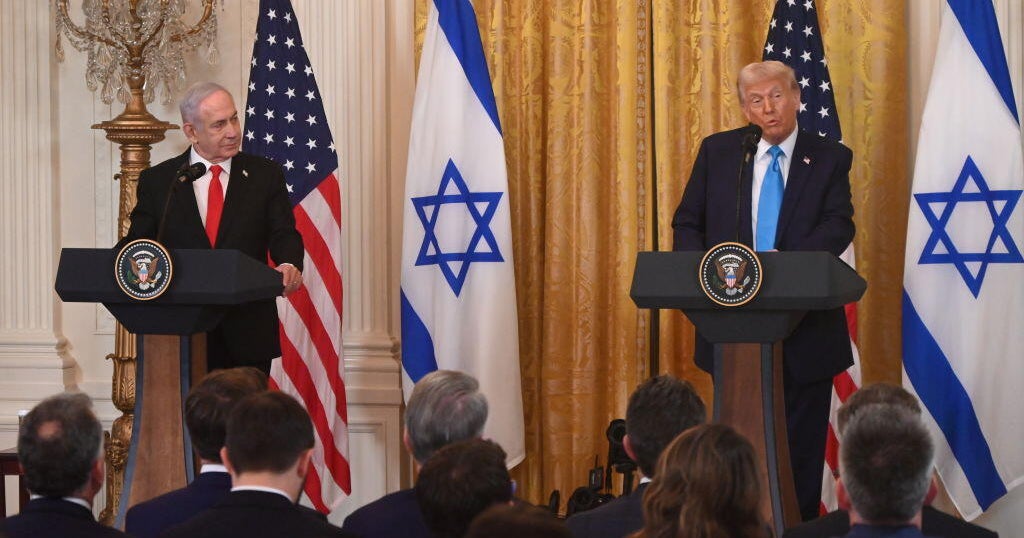President Donald Trump is set to welcome Israeli Prime Minister Benjamin Netanyahu to the White House on Monday. This meeting, confirmed by multiple sources to CBS News, will delve into a range of pressing issues, including the ongoing military operations in Gaza and the recent tariffs imposed by the U.S. on Israel and other nations.
Netanyahu’s office has acknowledged the invitation, indicating that he will arrive in the U.S. on Sunday. The two leaders plan to discuss not only the situation in Gaza but also relations between Israel and Turkey, as well as concerns regarding Iran and the International Criminal Court.
A statement from Netanyahu’s office expressed gratitude towards Trump for the continued strong relationship between the two leaders, noting this is the first time that Trump is meeting a world leader following the announcement of global tariffs, mirroring their initial meeting when Trump took office.
This upcoming discussion marks the second formal engagement between the two during Trump’s second term. Their previous encounter was in February, when Trump introduced a controversial plan concerning Gaza, envisioning its transformation into a premier tourist destination in the Middle East.
New Developments in Gaza
As the meeting approaches, Israel has intensified its military offensive in Gaza, aimed at compelling Hamas to release hostages and weaken the militant group. Recent updates indicate the establishment of a new security corridor in Southern Gaza, named the Morag Corridor. Netanyahu disclosed this on Saturday, suggesting it would isolate Rafah, a city prone to evacuations, from other regions of Gaza.
Israeli military forces have been deployed within this corridor, although specifics regarding troop numbers and locations remain undisclosed. The corridor’s strategic path is said to extend from the eastern to the western edges of the Gaza Strip, created to enhance Israel’s control over the affected areas.
Concerns Raised by Hamas
In response, Hamas has characterized the current situation as “highly dangerous” for the hostages they still hold. A spokesperson emphasized that a significant number of those captives are situated in regions designated for evacuation by Israeli military orders, raising alarms about their safety.
Hamas has stated that the release of the captive individuals, including several believed to be alive, is contingent upon the exchange for Palestinian prisoners, a ceasefire, and the withdrawal of Israeli forces from Gaza.
Impact of the Ongoing Conflict
The humanitarian situation continues to worsen, with Israel issuing evacuation orders in anticipation of further military action. The U.N. humanitarian office reports that approximately 280,000 Palestinians have been displaced since the cessation of a previous ceasefire brokered by the U.S., Egypt, and Qatar.
In an effort to counter Hamas, Israel has instituted a blockade on essential supplies, provoking outcry from human rights organizations. The situation has left civilians with limited access to food, fuel, and basic necessities. Israel has estimated that sufficient supplies were distributed during a preceding truce to sustain the population for an extended period.
The conflict reignited on October 7, 2023, when Hamas launched an assault that resulted in numerous casualties and took a significant number of hostages. According to reports, over 1,200 Israelis were killed in the attack, with the Israeli response leading to extensive casualties in Gaza, where over 50,000 Palestinians have reportedly died—many identified as women and children. Meanwhile, Israel claims to have neutralized approximately 20,000 militants amidst these operations.
Crisis in the Middle East
More updates to follow as the situation evolves.

